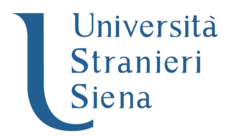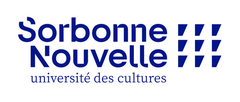List of members

SSH-council of the Netherlands
The SSH-council represents the Dutch domain of Social Sciences and Humanities (SSH) and is committed to strengthening its position within the Netherlands and beyond. The Council promotes collaboration across the four SSH-sectors: economics & business, humanities, law, and the social sciences. It actively advocates for the value and impact of SSH research and education.
The Council brings together the chairs of the national deans’ councils in the SSH-sectors, the chairs of the two SSH advisory councils of the Royal Netherlands Academy of Arts and Sciences (KNAW) and both the chair and director responsible for SSH within the Dutch Research Council (NWO). Together, they represent the entire Dutch SSH-domain.
The SSH-domain plays a critical role in addressing complex societal challenges, offering insights that contribute to both societal well-being and economic prosperity. The SSH-council works to ensure that the domain is resilient, well-connected, and equipped to make a lasting societal impact.
As EU policy and funding landscapes increasingly shape national research priorities, the SSH-council is expanding its efforts internationally.
Contact info
Rian Hesdahl
Policy Adviser
Social Sciences & Humanities / Raad (SSH-raad) Wittevrouwenstraat 7bis,
3512 CS Utrecht
The Netherlands
+31 (0)6 39516367

Swiss Academy of Humanities and Social Sciences
The Swiss Academy of Humanities and Social Sciences (SAHS) is the umbrella organization of 61 learned societies. Whether in literature or theology, in communication sciences or in political sciences, its member societies represent a whole variety of disciplines. In total, no fewer than 30,000 people are members of a learned society associated with the SAHS, making it the largest network in the humanities and social sciences in Switzerland.
Research promotion, international cooperation and the promotion of young academics – these have been the main concerns of the SAHS since its foundation in 1946. As an institution of research funding recognised by the Federal Confederation, the Academy is currently involved in four central thematic areas:
Networking
The SAHS serves as a platform for the realisation of joint projects and for the dissemination of research results within the scientific community. Its role as a "mediator" between the disciplines is also of great importance.
Promotion of the humanities and social sciences
The SAHS allocates a large part of its budget to the promotion of activities in the humanities and social sciences in our country. As far as possible, it pursues a funding policy that focuses on the promotion of young academics in research.
Outreach
The SAHS regularly organizes public conferences and panel discussions on current topics. It thus emphasizes the contribution of its disciplines to the analysis of important social challenges and promotes dialogue with politics and business.
Infrastructures in the humanities and social sciences
The SAHS is responsible for various long-term projects. These provide an important research infrastructure for the humanities and social sciences and make a substantial contribution to the preservation, communication and development of Switzerland's collective memory.
Swiss Academies of Arts and Sciences
The SAHS is a member of the Swiss Academies of Arts and Sciences. The Swiss Academies of Arts and Sciences network the sciences regionally, nationally and internationally. They are particularly active in the fields of foresight, ethics and advocate dialogue between science and society.
Contact info
Swiss Academy of Humanities and Social Sciences
Dr. Beat Immenhauser
Haus der Akademien
Laupenstrasse 7
Postfach
3001 Bern
Switzerland
Phone: +41 (0)31 306 92 50

SWPS University
SWPS University is a private, not-for-profit university in Poland, founded in 1996 as Szkoła Wyższa Psychologii Społecznej (Warsaw School of Social Psychology, SWPS). Initially focused on psychology, it has since expanded into a comprehensive institution with recognised research strengths across psychology, sociology, legal sciences, literary and cultural studies, and visual arts. SWPS is authorised to confer doctoral and post-doctoral (habilitation) degrees in seven disciplines and is recognised by the Polish Ministry of Science and Higher Education as a comprehensive university.
Its research is strongly interdisciplinary, connecting social-science inquiry with the humanities, law, and design, and its research excellence is reflected in sustained visibility in international subject rankings. SWPS was the first private university in Poland to join the European Universities Initiative, as a member of the European Reform University Alliance (ERUA).
Contact info
Grzegorz Rzeznik
Director of the Office of Research Strategy and Development
SWPS University

Taylor & Francis
Taylor & Francis is a business that is centred on creating, serving and sustaining diverse expert communities of researchers and other knowledge makers to maximise the contribution and impact of their work.
As one of the world’s leading publishers of scholarly journals, books, eBooks and reference works, our content spans all areas of Humanities, Social Sciences, Behavioural Sciences, Science, Technology and Medicine, and our brands include Taylor & Francis, Routledge, CRC Press, F1000 and Dovepress.
Contact info
Ms Lan Murdoch
Corporate Communications Manager
Taylor & Francis

The Arctic University of Norway – UiT
The University of Tromsø – The Arctic University of Norway (UiT) is the northernmost university of the world. Its location on the edge of the Arctic implies a mission. The Arctic is of increasing global importance. Climate change, the exploitation of Arctic resources and environmental threats are topics of great public concern, and which the University of Tromsø takes a special interest in.
At UiT you can explore global issues from a close-up perspective. UiT's key research focuses on the polar environment, climate research, indigenous people, peace and conflict transformation, telemedicine, medical biology, space physics, fishery science, marine bioprospecting, linguistics, and computational chemistry.
The Faculty of Humanities, Social Sciences and Education is one of the biggest faculties at UiT. Humanities and social science research play a key role in welfare and development in Norway. The research done at the Faculty of Humanities, Social Sciences, and Education is crucial for understanding the northern regions, and the faculty holds a strong position in indigenous research and research on Sami societal conditions.
The faculty’s researchers are internationally oriented and active in the debate on global challenges such as education, health, energy, climate, and the environment. They have also developed unique research databases in Sami studies, art history, and history that are used by researchers from all over the world.
Contact info
Marie-Theres Federhofer
Faculty of Humanities, Social Sciences and Education
UiT The Arctic University of Norway
PO Box 6050 Stakkevollan
N – 9037 Tromsø
Norway

Trinity College Dublin – Faculty of Arts, Humanities and Social Sciences
Trinity prides itself as both a national and international leader. Trinity College Dublin is Ireland's oldest and most internationally prominent university, as well as being active members of several university alliances, such as LERU, Coimbra and the CHARM-EU network.
Here in Trinity, we have for centuries made a distinguished contribution to the intellectual, social, and artistic life of Dublin and of Ireland. We are proud to be able to continue this long tradition of exciting research, teaching, writing, and public engagement. We are the inheritors, the custodians, but also the pioneers of research and thinking in our fields.
The Faculty is the largest and most diverse in the University, comprising of 12 Schools and a total of 25 Disciplines. Our Schools include most of the highest ranked subject areas in the University, many of them internationally renowned and ranked in the top 50 worldwide (QS Rankings). Furthermore, we play an important part in the cultural and intellectual life of the institution, the city, and the nation. The Faculty is home to a major interdisciplinary research institute in the Arts and Humanities, the Trinity Long Room Hub, and to Trinity Research in Social Sciences (TRiSS), a broad-based endeavour encompassing the best of our research and thinking in the Social Sciences.
At undergraduate level, the Faculty is home to over 7,000 students, studying for single honor and joint honor degrees. The Schools are also home to a large number of internationally-regarded taught Master’s programmes. Each of the Schools has a large and active community of research students and postdoctoral research fellows.
Contact info
Prof. Eve Patten
Director of Trinity Long Room Hub Arts & Humanities Institute

Turku University of Applied Sciences
Turku University of Applied Sciences (TUAS) is one of the leading universities of applied sciences in Finland. It is an innovative and multidisciplinary higher education institution of 11,000 students located in South-west Finland with close access to the unique archipelago environment of the Baltic Sea.
Our strategy is focused on the area of the Baltic Sea and the potential of the human capital. We engage citizens to find solutions for a green economy and a good life at home in the hybrid world.
At Turku University of Applied Sciences, the international perspective is integrated into all the activities, teaching, RDI as well as working life cooperation. This guarantees that our students and staff have the intercultural skills needed in today’s multicultural working life. It also ensures the high international quality of our education and applied research.
Our spearhead focus is on:
Arts for a good life Functional regional Health and Well-being services Lively Business area and advanced Engineering solutions.Find out more about the three faculties on our website.
Contact info
Ritva Salminiitty
Senior Advisor
Turku University of Applied Sciences
Joukahaisenkatu 3, 20520 Turku, Finland
T: +358505985245

Università per Stranieri di Siena
The University for Foreigners of Siena is a university institute of higher education, research and high-level training with a special status, whose prestige in the research and educational fields is recognised at an international level. The University promotes culture, teaching and research in the disciplines of Social Sciences and Humanities (SSH).
The mission of the University for Foreigners of Siena is to study and promote the interaction of the Italian language and culture with other languages and cultures in order to foster processes of encounter, dialogue and mediation between people from different cultures, promoting the civilised and peaceful coexistence that stems from mutual recognition and mutual respect.
The university's research and education programme is focused on Social Sciences and Humanities (SSH). The Statute’s special mission is to study and examine phenomena of cultural and linguistic contact, mediation and inclusion: from philological-literary and historical-artistic sciences to historical, philosophical and pedagogical sciences; from legal sciences to political and social sciences.
Contact info
Caterina Toschi
Associate Professor of History of Contemporary Art and History of Photography (L-ART/03)
Rector's Delegate for Research and Digital Transition

Université de Lorraine
With more than 3,900 teaching and research faculty and approximately 62,000 students, including nearly 10,000 foreign students, the Université de Lorraine (UL) is one of France’s largest multidisciplinary universities.
Its location at the heart of Europe, bordering three European member states (Germany, Belgium and
Luxembourg) offers UL a privileged position for strong international partnerships. UL is committed to numerous European and international collaborations and exchanges, including multi-partnership projects and initiatives that, in many cases, go beyond European borders. UL is constantly engaged in European projects covering a large part of the Horizon Europe programme.
The scientific activity of the Université de Lorraine is organised in 60 research laboratories located in 10 scientific centers covering a wide range of disciplinary fields and topics: agriculture, food science, forestry, environment, energy, biology, medicine, health, chemistry, physics, process engineering, product engineering, materials science and engineering, metallurgy, mechanical engineering, computer
science, automation, electronics, mathematics, communication, social sciences, literature, languages, law, political science, economics, management, arts, architecture.
More specifically, the Universié de Lorraine currently hosts 10 laboratories in the human and social sciences, with a total of 340 researchers and professors.
Contact info
Fabrice Lemoine
Deputy Vice-President Strategy Europe
Teacher / Researcher
T: +33 3 72 74 42 46

Université Sorbonne Nouvelle
Founded in 1970, the Sorbonne Nouvelle, which emerged from the former Faculty of Arts of the Université de Paris, combines the heritage of the Sorbonne with a spirit of continual innovation. Sorbonne Nouvelle University offers an extensive range of high-level multidisciplinary courses in the fields of Arts, Humanities, Languages, and Social Sciences, which benefit from the support of its 30 research units. It awards Bachelor’s, Master’s and Doctoral degrees that attract students and researchers from all over the world.
These qualifications provide a wide variety of career opportunities: in teaching and research, publishing, library science, the performing arts (theatre, cinema and television), communications and journalism, cultural and creative industries, translation and interpreting, and in European and international relations.
Our university attracts researchers and students from all over the world, it has over 680 scholars working in 30 different research units. Each year, it also plays host to more than 70 scientific events and awards over one hundred PhDs. The 1,130 doctoral candidates in our five Doctoral Schools work in close partnership with the university’s internationally recognised research units. Professional development programmes also enable doctoral candidates to benefit from employment in projects managed by private companies and non-profit organisations.
Sorbonne Nouvelle University comprises 3 faculties, 1 school of translation and interpretation and 1 Institute of Latin American Studies. Not only does the university offer on-campus programs but its digital gateway, iCampus, offers access to a virtual learning environment, communication tools, office software and a wealth of multimedia resources. Students can choose from 20 distance learning programmes ranging from access to higher-education diplomas to Masters qualifications.
Sorbonne Nouvelle is also strongly committed to promoting a dynamic environment that encourages students’ personal development and creativity. To this end, it provides access to an extensive cultural programme, with over 250 film screenings per year and a choice of more than 30 sports activities. With a network of close to 40 civil society organisations, the Sorbonne Nouvelle helps students to set up, finance and promote a wide range of innovative projects.
Finally, the Sorbonne Nouvelle Library comprises renowned collections in the Arts, Humanities, Languages, and Social Sciences, available in the physical library and 24-7 online. The Gaston Baty Performing Arts Library (TGB) holds some 120,000 documents on the performing arts.